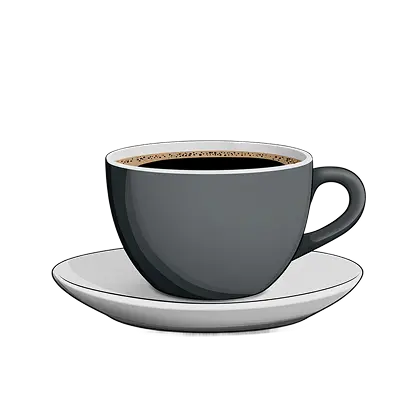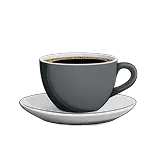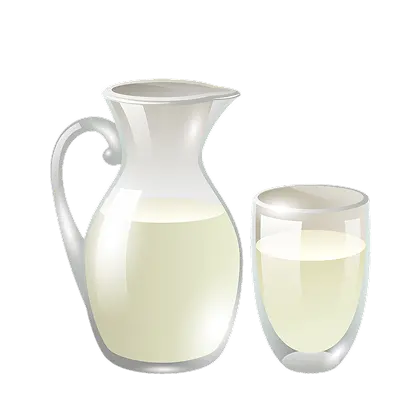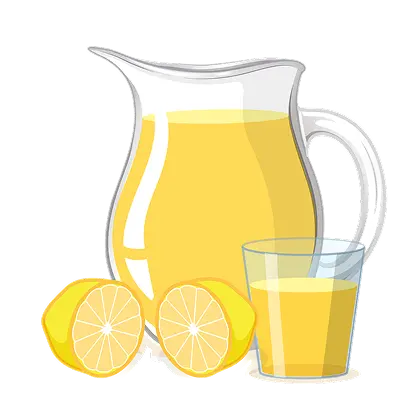

Coffee (noun) – This is a caffeinated brew made from roasted and ground seeds of the coffee plant, usually Coffea arabica or Coffea canephora (robusta), recognized for its awakening effect.
Coffee has found a place as a social drink or a ritual beverage, hence having a cultural and economic impact worldwide and cashing in on the intertwining of culture with economy.
How to Pronounce “Coffee”?
First part is “cof,” like the word “off.” The second part is “ee,” like in “tea.” Say it together: “cof-ee.” Make “cof” strong and “ee” soft. So it is basically how do you spell coffee!
Level up your English with Koto!
Examples: How to Use “Coffee” in a Sentence?
Discover how you can use this word properly on a daily basis to strengthen your vocabulary and empower your lexical capabilities in English.
What Are Synonyms for the Word “Coffee”?
We do not have direct “coffee” synonyms because this noun is very unique in lexical terms and represents a certain drink, but still, there are a lot of interesting related words, so let’s discover them.
Related nouns: espresso brew cuppa joe café decaf (decaffeinated coffee) latte cappuccino
Synonyms (contextual): black gold bean juice liquid energy morning fix
Common collocations: coffee cup coffee shop coffee machine coffee aroma instant coffee coffee drinker
“Coffee” Word Formation and Description in Context
This word has become very common a long time ago for humanity, so let’s not lag behind and discover the varicolored spectrum of different collocations with “coffee” and basically some more information about its lexical usage.
With adjectives: hot coffee strong coffee bitter coffee cold coffee fresh coffee creamy coffee black coffee sweet coffee rich coffee
With verbs: brew coffee make coffee serve coffee pour coffee sip coffee drink coffee spill coffee order coffee roast coffee grind coffee
With nouns (noun + noun): coffee table coffee beans coffee grounds coffee filter coffee mug coffee brand coffee break
Idioms and Phrases with “Coffee”
It is not just your ordinary drink you have daily, it also has interesting yet sometimes unexpected idiomatic meanings that we gladly offer you to uncover with us.
-
Wake up and smell the coffee — it means to stop avoiding reality and face it, perhaps calling someone back down to earth. It is usually said when someone is being unrealistic or has their head in the clouds.
If you think you can skip practice and still make the team, it’s time to wake up and smell thecoffee . -
Coffee’s for closers — those who are successful or achieve their goals deserve any rewards or privileges, reminding people they have to earn their stripes. It´s motivational or tough love at times.
The boss said, “coffee’s for closers,” pushing the sales team to hit their targets before taking a break. -
Running on coffee — someone works mostly because of caffeine, usually while simply tired, but having to get the job done on fumes fueled by the bitter caffeine within the cup.
After pulling an all-nighter, I’m just running oncoffee to get through the day. -
Not my cup of coffee — it´s a gentle way of saying that something really is not your preference.
Skydiving sounds exciting, but honestly, it’s not my cup ofcoffee . -
In the coffee zone — that means being focused, energized, or relaxed post coffee and feeling like working at 100%. The former hints at the mental or physical working of caffeine.
Now that I’ve had my third cup, I’m finally in thecoffee zone and ready to work.
Test Your Knowledge of Coffee Meaning – Quiz Time!
Make up a cup of coffee for you to feel this beautiful aroma and taste and join us in this interesting game where you will see more of coffee description and something more.
Enjoy personalized learning!
“Coffee” Word in Other Languages
Now we have an understanding of “coffee” in English, but what about other popular, widely spoken languages?
| Language | Word for “Coffee” |
|---|---|
 Spanish
Spanish |
Сafé |
 French
French |
Сafé |
 German
German |
Kaffee |
Did You Know It? Fun Facts About “Coffee”
It is time to let our brains rest a bit and dive into interesting facts that can change our perception of coffee, its importance to society. So, what does coffee mean for the rich history of our planet?
-
Coffee is the second most traded commodity in the world.
Coffee, having been classed second after oil, is a much-traded commodity, thereby revealing its extreme value. It is in consequence of this that it is evident that the world trade system and economies are deeply intertwined with coffee. In keeping with that, the livelihood of millions of people depends on the planting of coffee and the marketing of any or all coffee products or by-products. -
Coffee beans are actually seeds of a fruit.
What are commonly called coffee beans are, in fact, seeds which lie inside the fleshy outer covering of the coffee plant’s fruit — the coffee cherry. The cherries are green at first and then turn bright red or purple when ripe, ready to harvest, hanging on until fully ripe. After harvesting, they are depulped and the seeds that emerge from this process are changed into beans for processing. -
The word “coffee” comes from the Arabic word “qahwa.”
The word “coffee” is derived from the Arabic word “qahwa,” which in its original meaning was a kind of wine or intoxicating beverage. With time, however, this term came to the name as the wonderful energizing brewed drink made from roasted coffee beans. The etymology provides a clue to the East-West journey that coffee has traveled culturally and historically. -
Drinking coffee can improve brain function temporarily.
Caffeine, the active ingredient in coffee, prevents the effects of adenosine, a chemical in the brain that causes tiredness and sleep. Such blocking results in a higher activity of chemicals that provide stimulation, such as dopamine and norepinephrine, that raise alertness, mood, and concentration. Hence, in the short term, coffee gives people a feeling of being awake and focused. -
Finland is the world’s top coffee consumer per capita.
Even though coffee enjoys global popularity, the Finns drink more coffee per capita than any other country, since it comes close to around four cups a day. Coffee is very much part of Finnish culture, too many coffee breaks during the working day are important details of socializing and just an integral part of work. This is a high consumption not merely for taste but also because of their long and cold winter, when you need some coffee to warm you.
Famous Quotes Featuring “Coffee”
It is not a secret that this drink is a guest of famous quotations from no less famous personalities, so let’s take a look at how influential “coffee” was and still remains.
— Terri Guillemets
Explanation: The quote puts coffee as a soothing ritual gathered from those precious fluid hours of dawn and promotes it as a way to rise and shine with somebody. It suggests that some of the best things to wake up to is coffee while your mind is still soaking in some consciousness from waking.
Explanation: Jefferson exalted coffee as one of culture, refinement, and progress. Hence, he implies that any society that considers itself sophisticated will inevitably make coffee its newest drink of choice.
— Anne Morrow Lindbergh
Explanation: Lindbergh compares stimulating conversations to a shot of strong coffee, emphasizing the interesting and lasting impact it conjures, almost like a jolt to the system. Like caffeine, engaging conversation can keep your mind away from sleep long after the conversation has ended.
— Johann Sebastian Bach
Explanation: Here we see the usage of an absurdly funny analogy to express how lifeless he felt without a morning coffee, something about as useful as a chocolate teapot. It deepens one’s dependence on it to feel refreshed and functional. This quotation gives us maybe the most interesting description of coffee as a human fuel.
— Sir James Mackintosh
Explanation: This quote has an interesting association, heightening mental faculties with the drinking of coffee. Coffee, intellectually, may be seen as an enhancer, a fuel for the brain.





